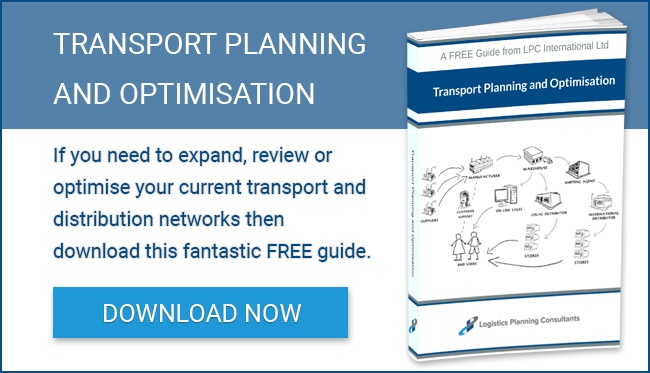
An integrated transport planning strategy can help businesses analyse efficiency and save costs across the whole supply chain. In this article we give an overview of all the processes involved and the savings businesses stand to make when taking a systematic approach to planning.
Transportation Costs
The transportation and delivery of goods can account for as much as 15% of the total price goods and in extreme cases even as much as 50%. It is therefore important that a business has as efficient a transport system as possible. With proper planning and management, as much as 30% could be saved on those transportation costs.
Considering Your Options
One of the main problems businesses experience with their transportation is the lack of ability to change or respond, as and when necessary, in order to reduce costs. Just because a business owns a fleet of trucks, it does not mean that those trucks will always provide the cheapest option for deliveries. Sometimes a business’s trucks may only carry a part load, which makes the cost per unit of freight more expensive than it would be if the truck was full. A key part of integrated transport planning is the ability to switch modes of transport used for deliveries, where practical and financially beneficial.
Working With Third Parties
If a business always sends out full trucks to scheduled destinations on a routine basis, using their own trucks is usually the most cost effective way to make those deliveries. However, if the volume and type of load changes and the destinations fluctuate, it may at times be more financially beneficial to use a third party delivery service. The per unit cost for third party deliveries to various locations, especially the more remote locations, should therefore always be available to consider in preference to using their own vehicles, opting for the cheapest or most cost effective.
In some instances, a business’s own transport and a third party delivery service may be combined within a single route. This is where a business’s own transport may make deliveries to a central distribution point for the third party to take over. An example of this may be when a truck leaves your distribution centre full but makes different drops along its route, ending with a fraction of the load for a remote destination. The cost of sending your own truck with only a part load for the remaining distance may be more expensive than using the third party carrier. Third Party costs could be far lower if you deliver to a suitable depot closer to the destination you’re your own warehouse.
Integration
Integrated transport means considering other modes of transportation such as air, rail or sea as well as road. Although road and ferries are usually the cheapest options, extra- large, bulky loads may be cheaper if transported by rail. Obviously air freight is usually the most expensive but in order to keep a high reputation for an excellent delivery service, it should be considered in some urgent cases where the distance warrants it.
The key to having an effective and efficient delivery service is professionalism in planning and speed in implementing those plans. It is therefore essential for any transport strategy to consider all the different options available, negotiating where necessary for the cheapest prices. It is also necessary that those prices and options are readily available for the transport manager to consider at the time they are needed, allowing flexible responses to changing circumstances. Of course, to enable the manager to determine the cheapest option, they will have to know per unit cost of deliveries to different destinations, using their own transport.
Transport Planning Software
Today a variety of software platforms are available to assist transport managers in integrating their delivery service and optimising their choices. Any software platform is only as good as the data that it is given and so for it to be of the best use, it should be fully utilised and all necessary information be researched and added to the software’s memory.
At Logistics Planning Consultants (LPC) we have the knowledge and experience to help you integrate your business’s transportation system and implement the most efficient plans. For more information, please download our free Guide To Transport Planning & Logistics by clicking here.


